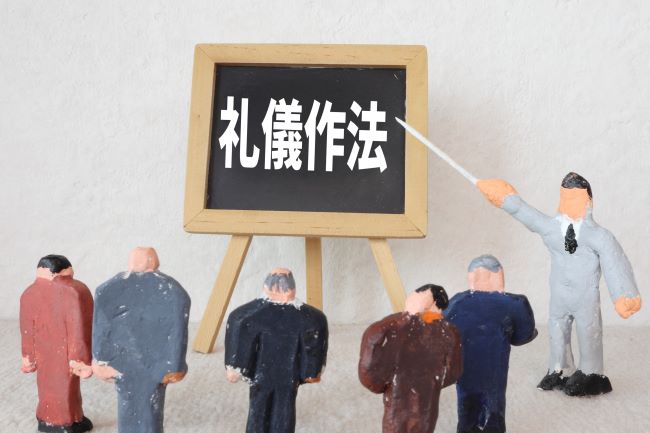❏
❏
❏
❏
❏
これは、
また、
Courtesy and Common Sense in Japan
Japan is a country that highly values courtesy. In Japan, there are numerous words and actions to express respect and appreciation for others, and the entire society is expected to behave politely.
For example, greetings, apologies, and bowing are essential in everyday communication. In addition, people are expected to be considerate of others and the environment, such as by remaining quiet in public places or properly separating trash, etc.
Through these courtesies, Japanese people aim to build good relationships with others and ensure the smooth functioning of society as a whole. Because of this cultural background, many recognize Japan as a "polite country."
❏ Please take off your shoes.
Removing one's shoes when entering an indoor space is customary in Japan. Taking off shoes prevents bringing in dirt and grime from the outside and keeps a clean and comfortable indoor environment. Therefore, places to put your shoes are commonly available, and slippers are also often available for use.
❏ Do not talk loudly, do not use cell phones.
Do not talk loudly or use cell phones in public places or in groups. Not only is this disruptive to those around you, but it can also give the impression that you are self-centered. When making phone calls in public places, be aware of your surroundings and try to find a quiet area.
❏ Do not smoke or eat while walking.
In Japan, there are many places where smoking while walking or eating and drinking while walking is prohibited. This is done to avoid disturbing others and polluting public spaces. Not only does smoking while walking cause cigarette smoke and sparks to fly into the surrounding area, negatively affecting people's health and hygiene, but it can also cause accidents with pedestrians and vehicles. Similarly, eating and drinking while walking can cause problems for people around you, so please refrain.
❏ Walk with at least 30,000-40,000 yen in cash.
Cash is still one of Japan's most commonly used means of payment. Non-cash payment methods such as credit cards and electronic payments may not be accepted at small stores, street vendors, or public transportation, etc. Therefore, having at least 30,000 to 40,000 yen in cash is advisable.
❏ Do not talk with things in your mouth.
This is to avoid making others uncomfortable or making it difficult for them to hear you. It is considered a breach of etiquette to speak with food in one's mouth, especially during meals. Similarly, talking with food in one's mouth is also not advisable in public and business situations.
Japan is a densely populated country with many people living in small spaces. Therefore, close attention to detail and good manners are required to avoid causing discomfort or inconvenience to others.
Additionally, Japanese culture and customs also have many rules of courtesies and common sense. Respecting these key points will deepen your understanding of Japanese society and improve your manners.
We would suggest that visitors consider studying about Japanese culture and customs in advance, if possible. Then, through interactions with local people, you can experience Japan's incredible culture and the people's warmth.
sign up for the Japanese-Online Newsletter
__..-・**・-..__..-・**・-.._ あいうえお かきくけこ さしすせそ たちつてと なにぬねの はひふへほ まみむめも やいゆえよ らりるれろ わゐうゑを ん __..-・**・-..__..-・**・-.._
#JapaneseOnline #LearningJapanese #FreeJapaneseLessons #JapaneseVideoLearning #JapaneseAnime #Anime #JapaneseFood #Bloguru

